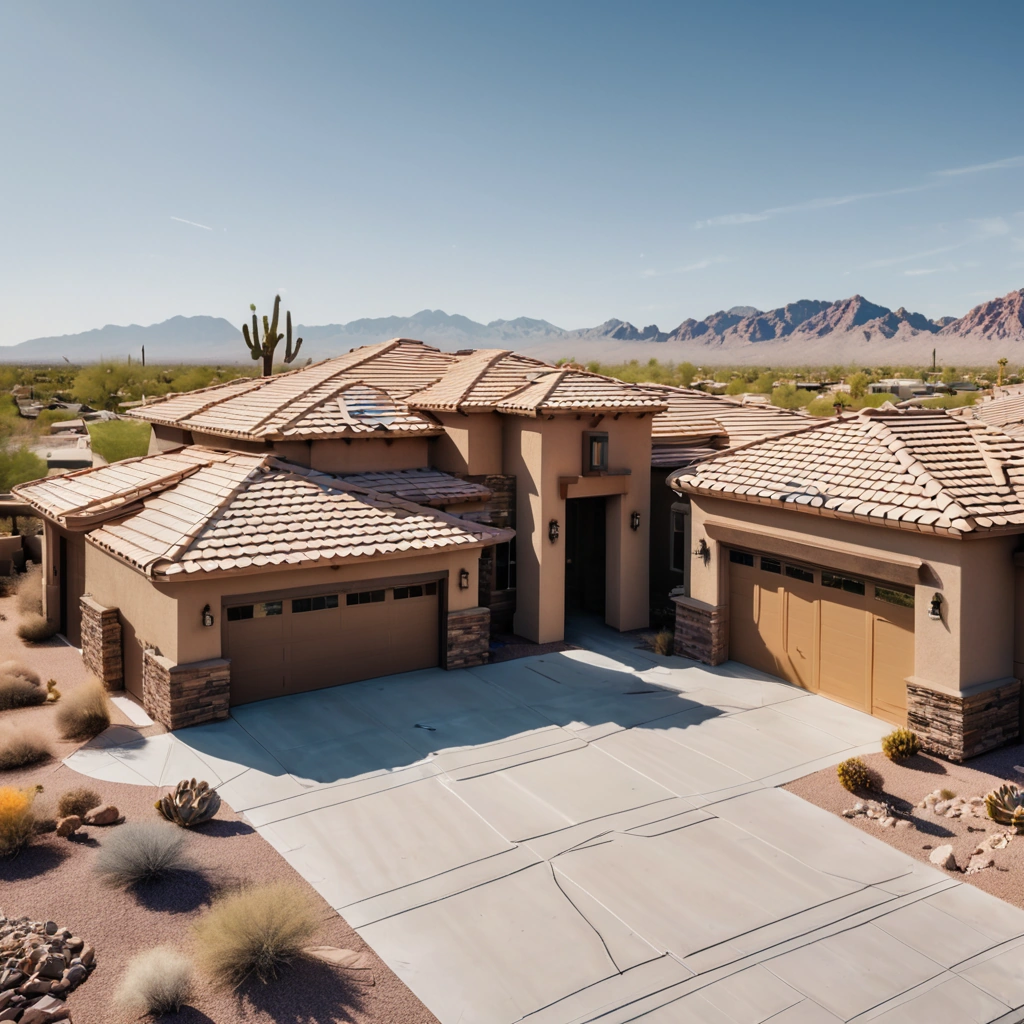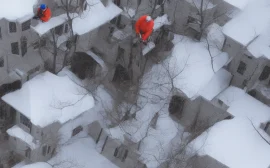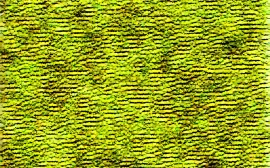Introduction: Protecting Your Phoenix Home from Wildfire
Phoenix, Arizona, a city known for its stunning desert landscapes and vibrant culture, also faces a significant challenge: wildfire risk. The dry climate and surrounding vegetation create conditions ripe for wildfires, making fire-resistant roofing a crucial investment for homeowners. This guide provides a comprehensive overview of fire-resistant roofing options specifically tailored for Phoenix, considering local building codes, climate conditions, and budget considerations. Choosing the right roofing material can not only protect your home and family but also potentially lower your insurance premiums and increase your property value.
In the arid Southwest, the threat of wildfires looms large, making the selection of fire resistant roofing Phoenix a critical decision. Annually, Arizona battles numerous blazes, some encroaching upon residential areas. Homes equipped with non-combustible roofing materials, such as concrete tile roofing Phoenix or metal roofing Arizona, stand a significantly better chance of withstanding these threats. Beyond the immediate safety benefits, fireproof roofing Phoenix homes often translates into more favorable insurance rates, as insurance providers recognize the reduced risk.
Investing in Class A roofing Phoenix is thus a proactive step towards safeguarding both your property and your financial well-being. Understanding Arizona roofing codes is paramount when considering wildfire protection roofing. These codes, influenced by the Arizona Revised Statutes (ARS) and local municipal regulations, often mandate Class A fire-rated materials for new construction and roof replacements. Selecting the best roofing materials Arizona means choosing options that meet or exceed these stringent standards. Furthermore, consulting with qualified Phoenix roofing contractors is essential to ensure proper installation and compliance.
These professionals possess the expertise to navigate the complexities of local regulations and recommend the most suitable fire resistant shingles Phoenix and other roofing solutions for your specific needs. Ultimately, the decision of which fire-resistant roofing to install involves careful consideration of several factors. While cost is a significant concern, the long-term benefits of enhanced protection, potential insurance savings, and increased property value often outweigh the initial investment. This guide aims to empower Phoenix homeowners with the knowledge necessary to make informed decisions, ensuring their homes are well-protected against the ever-present threat of wildfires. Exploring options beyond traditional asphalt, such as the increasingly popular metal roofing Arizona, can provide both aesthetic appeal and superior fire resistance, making it a worthwhile consideration for discerning homeowners.
Understanding Arizona’s Wildfire Threat and Building Codes
Arizona’s Wildfire Risk and Roofing Codes: Arizona experiences a prolonged wildfire season, typically spanning from late spring through the fall, making fire resistant roofing Phoenix a critical concern. The Arizona Revised Statutes (ARS) and local municipal codes, including those in Phoenix, address fire safety standards for roofing, impacting choices for the best roofing materials Arizona. These codes often mandate Class A fire-rated roofing materials for new construction and roof replacements, representing a proactive approach to wildfire protection roofing.
Class A provides the highest level of fire protection, capable of withstanding severe fire exposure, ensuring homes are better equipped to survive a wildfire. Homeowners should always verify current building codes with the City of Phoenix Planning & Development Department before undertaking any roofing project. Failure to comply can result in fines and mandatory replacements, highlighting the importance of adhering to Arizona roofing codes. Beyond legal requirements, understanding the nuances of fireproof roofing Phoenix homes is essential for safeguarding property and lives.
For instance, while a Class A rating provides significant protection, the specific materials and installation methods play a crucial role. Concrete tile roofing Phoenix, known for its inherent fire resistance, provides a substantial barrier against embers and flames. Similarly, metal roofing Arizona, when paired with a fire-resistant underlayment, offers excellent protection and longevity. Selecting fire resistant shingles Phoenix also depends heavily on proper installation to maintain the Class A rating. Furthermore, homeowners should consider consulting with experienced Phoenix roofing contractors who are well-versed in local regulations and best practices for wildfire mitigation. These professionals can assess a home’s specific needs and recommend the most appropriate fire-resistant roofing solutions. They can also ensure proper installation, which is crucial for maintaining the roof’s fire-resistant properties and complying with local codes. Investing in fire-resistant roofing is not only a matter of compliance but also a proactive step towards protecting your home and family from the devastating effects of wildfires.
Concrete Tile Roofing: Durable and Fire-Resistant
Concrete Tile Roofing: Concrete tile is a popular choice in Phoenix due to its exceptional fire resistance (Class A rated), durability, and aesthetic versatility, making it a smart investment for homeowners concerned about wildfire protection. This roofing material provides a robust barrier against embers and flames, crucial in a region prone to wildfires. Its non-combustible nature ensures that even direct exposure to intense heat will not cause the roof to ignite or contribute to the spread of fire.
Concrete tile’s inherent fire-resistant properties offer peace of mind, knowing your home has an extra layer of defense against the ever-present threat of wildfires, making it one of the best roofing materials Arizona has to offer. Pros: Exceptional fire resistance, offering a Class A fire rating, the highest level of protection, ensuring compliance with Arizona roofing codes and providing superior wildfire protection roofing. Concrete tile also boasts a long lifespan, often exceeding 50 years, minimizing long-term replacement costs.
The wide range of colors and styles available allows homeowners to match their roofing to their home’s architectural design, enhancing curb appeal and potentially increasing Phoenix real estate value. Furthermore, concrete tile is relatively low maintenance, requiring minimal upkeep compared to other roofing materials. Cons: The higher initial cost compared to asphalt shingles can be a barrier for some homeowners. Its heavier weight necessitates a structurally sound roof frame, potentially requiring additional reinforcement, adding to the overall project expense.
While durable, concrete tile can be susceptible to cracking in extreme temperature fluctuations if not properly installed, highlighting the importance of hiring experienced Phoenix roofing contractors. Beyond its fire-resistant qualities, concrete tile offers significant benefits for Phoenix homeowners. Its thermal mass helps regulate indoor temperatures, reducing energy consumption and lowering utility bills, a crucial factor in Arizona’s hot climate. The material’s durability also makes it resistant to hail and strong winds, common weather hazards in the region.
Aesthetically, concrete tile can mimic the look of traditional clay tile or even wood shakes, providing versatility in design. For instance, many homes in Scottsdale and Paradise Valley utilize concrete tile to achieve a Southwestern style while ensuring top-tier fire protection. Investing in concrete tile roofing Phoenix homes not only enhances safety but also contributes to long-term cost savings and aesthetic appeal. Proper installation is paramount to maximizing the benefits of concrete tile roofing. Engaging a qualified and experienced Phoenix roofing contractor is essential to ensure correct installation techniques are followed, including proper underlayment, fastening, and sealing.
A poorly installed concrete tile roof can lead to water damage, premature cracking, and reduced fire resistance. Regular inspections and maintenance, such as clearing debris from gutters and addressing any cracked or damaged tiles promptly, will further extend the lifespan and effectiveness of the roof. The cost of concrete tile roofing typically ranges from $10-$20 per square foot installed, reflecting the material’s premium qualities and installation requirements. When budgeting for a new roof, consider the long-term benefits of concrete tile, including its fire resistance, longevity, and potential impact on home resale value, making it a worthwhile investment for discerning Phoenix homeowners.
Clay Tile Roofing: Classic Southwestern Style with Fire Protection
Clay Tile Roofing: Similar to concrete tile, clay tile offers excellent fire protection and a distinctive Southwestern aesthetic, making it a sought-after choice for discerning Phoenix homeowners. Pros: Class A fire rating, offering the highest level of fire resistance as mandated by Arizona roofing codes, extremely long lifespan (100+ years), often exceeding a century with proper maintenance, naturally resistant to pests and rot, eliminating the need for chemical treatments, enhances home’s curb appeal, potentially increasing property value in the competitive Phoenix real estate market.
Cons: High initial cost, a significant investment compared to other options like asphalt shingles, very heavy requiring significant structural support, potentially necessitating reinforcement of the roof framing, limited color options compared to concrete tile, typically available in shades of red, brown, and terracotta, more brittle than concrete and prone to breakage during installation or severe weather events, demanding careful handling and skilled installation. Cost: $15-$25 per square foot installed. The enduring appeal of clay tile in Phoenix stems not only from its fire-resistant properties, crucial for wildfire protection roofing, but also from its inherent suitability to the desert climate.
Unlike some materials, clay tile breathes, allowing for natural ventilation that can help regulate attic temperatures and reduce energy consumption – a significant benefit during Arizona’s scorching summers. Furthermore, its resistance to fading and degradation from intense UV exposure ensures that the roof maintains its aesthetic appeal for decades, contributing to the overall value and desirability of the property. For homeowners prioritizing longevity and a classic Southwestern look, clay tile represents a premium, albeit costly, investment.
However, the decision to install clay tile roofing in Phoenix should involve a thorough assessment of the home’s structural capacity and a consultation with experienced Phoenix roofing contractors. The considerable weight of clay tile, often exceeding 10 pounds per square foot, necessitates a robust roof structure capable of bearing the load. In some cases, reinforcement may be required, adding to the overall project cost. Moreover, the brittle nature of clay tile demands meticulous installation by skilled professionals to minimize the risk of breakage and ensure long-term performance.
Selecting a reputable contractor with expertise in clay tile installation is paramount to realizing the full benefits of this premium roofing material and avoiding costly repairs down the line. Considerations should also be given to HOA restrictions, as some communities may have specific guidelines regarding roofing materials and colors. Beyond its fire resistance and aesthetic qualities, clay tile roofing offers a tangible sense of security and peace of mind in a region prone to wildfires.
While no roofing material is entirely fireproof, Class A roofing Phoenix options like clay tile provide a critical barrier against airborne embers and direct flame impingement, significantly reducing the risk of fire spread. This is particularly important in areas bordering undeveloped land or those with a history of wildfire activity. When comparing best roofing materials Arizona for wildfire protection, clay tile consistently ranks among the top choices, offering a blend of durability, longevity, and aesthetic appeal that makes it a worthwhile investment for homeowners seeking to protect their properties and loved ones from the devastating effects of wildfires. Homeowners should always verify that the chosen clay tile meets or exceeds local Arizona roofing codes.
Metal Roofing: Energy-Efficient and Long-Lasting
Metal Roofing: Metal roofing, including steel, aluminum, and copper, is an increasingly popular option for its fire resistance and energy efficiency, making it a smart choice for Phoenix homeowners. Pros: A significant advantage is its Class A fire rating, crucial for wildfire protection roofing, although this often depends on the underlayment used. Metal roofs also boast a long lifespan, typically ranging from 40 to 70 years, offering a substantial return on investment. Their energy-efficient properties stem from their ability to reflect solar heat, potentially lowering cooling costs during Arizona’s intense summers.
Furthermore, metal is lightweight compared to tile, reducing the structural burden on your home, and it’s available in various styles mimicking shingles, tile, or shakes, allowing for aesthetic versatility. Cons: While durable, metal roofing can be noisy during rainstorms, a factor to consider for some homeowners. There’s also the potential for denting from hail, though many modern metal roofs are designed to withstand such impacts. The upfront cost is higher than asphalt shingles, but this is often offset by the material’s longevity and energy savings.
Finally, expansion and contraction due to temperature fluctuations can cause issues if not properly installed, highlighting the importance of choosing experienced Phoenix roofing contractors. Cost: Expect to pay $9-$16 per square foot installed. Beyond the basic pros and cons, Phoenix homeowners should consider the specific type of metal roofing that best suits their needs and budget. Steel roofing, often coated with protective layers like galvalume or galvanized coatings, offers a good balance of affordability and durability.
Aluminum roofing is highly resistant to corrosion, making it ideal for areas with high humidity or saltwater exposure, though it tends to be softer than steel. Copper roofing is the most expensive option, prized for its aesthetic appeal and exceptional longevity; it develops a distinctive patina over time, adding character to the home. When evaluating metal roofing, it’s essential to inquire about the gauge of the metal (thickness) and the type of coating used, as these factors significantly impact its performance and lifespan in the harsh Arizona climate.
Always verify that the chosen metal roofing system meets Arizona roofing codes for fire resistance. Industry trends indicate a growing demand for coated metal roofing that mimics the look of other materials, providing the fire resistance and longevity of metal with the desired aesthetic of tile or wood shakes. These options often incorporate granular coatings or multi-layered finishes to achieve a realistic appearance. Homeowners in Phoenix are increasingly drawn to these options as they seek to enhance their home’s curb appeal while ensuring optimal fire protection. Moreover, advancements in installation techniques have minimized the noise associated with metal roofing, making it a more appealing choice for those concerned about sound. When comparing metal roofing options, be sure to obtain quotes from multiple Phoenix roofing contractors and carefully review their experience with metal roofing installations to ensure proper installation and long-term performance. Selecting the right underlayment is also crucial for achieving a Class A fire rating and preventing moisture damage.
Asphalt Shingles: An Affordable Option with Fire Protection
Asphalt Shingles: Balancing Affordability and Fire Resistance (Class A Rated): Asphalt shingles represent a significant portion of the residential roofing market in Phoenix, largely due to their affordability and ease of installation. While standard asphalt shingles offer limited fire protection, specially manufactured Class A fire-rated asphalt shingles, when combined with compliant underlayment systems, provide a viable, budget-conscious option for homeowners seeking wildfire protection roofing. These shingles incorporate fire-retardant additives and are tested to withstand severe fire exposure, making them a code-compliant choice in many Phoenix neighborhoods.
However, it’s critical to verify that the selected shingles and underlayment are explicitly certified as Class A fire-rated according to Arizona roofing codes and meet local Phoenix requirements, as not all asphalt shingle products achieve this level of fire resistance. Consulting with experienced Phoenix roofing contractors is essential to ensure proper selection and installation for optimal fire safety. Selecting Class A fire-rated asphalt shingles involves careful consideration of several factors specific to the Arizona climate.
The intense solar radiation and extreme temperatures prevalent in Phoenix can accelerate the degradation of asphalt shingles, potentially reducing their fire-resistant properties over time. Therefore, opting for shingles with enhanced UV protection and thermal stability is crucial. Furthermore, the lifespan of asphalt shingles in Arizona, even Class A rated options, is generally shorter (15-30 years) compared to concrete tile roofing Phoenix or metal roofing Arizona, necessitating more frequent replacements. Homeowners should also be aware that while Class A rated asphalt shingles offer a degree of fire protection, they are not entirely fireproof roofing Phoenix homes; direct and prolonged exposure to intense flames can still cause them to ignite or melt.
Regular maintenance, including removing debris and ensuring proper ventilation, is vital to prolonging their lifespan and maintaining their fire-resistant qualities. From a Phoenix real estate perspective, installing Class A fire-rated asphalt shingles can enhance a home’s marketability by demonstrating a commitment to fire safety. However, it’s important to recognize that potential buyers may also consider the longer-term cost implications, including the shorter lifespan and potential for increased maintenance compared to alternative roofing materials. While the initial cost of $4-$8 per square foot installed (for Class A rated options) is attractive, homeowners should weigh this against the potential for higher lifecycle costs. Ultimately, the choice of asphalt shingles as a fire resistant roofing Phoenix solution requires a balanced assessment of budget, fire safety priorities, and long-term ownership considerations. Exploring options with high fire ratings is imperative when considering the best roofing materials Arizona for wildfire protection roofing.
Selecting the Best Fire-Resistant Roofing for Your Needs
Selecting the best fire-resistant roofing material for your Phoenix home is a multifaceted decision, deeply intertwined with your budget, the architectural character of your property, and any applicable homeowner’s association (HOA) guidelines. For homeowners prioritizing a classic Southwestern aesthetic coupled with unparalleled longevity, clay tile stands out as an exceptional choice, though it represents a significant investment. Concrete tile roofing Phoenix offers a similar visual appeal at a somewhat reduced cost, providing a compelling balance of aesthetics and fire protection.
Metal roofing Arizona presents a modern and energy-efficient alternative, boasting excellent fire resistance and the ability to reflect solar heat, potentially lowering energy bills. If budget constraints are paramount, Class A roofing Phoenix asphalt shingles provide a more economical path to fire resistance, albeit with a comparatively shorter lifespan. Always solicit multiple quotes from licensed Phoenix roofing contractors and meticulously examine the warranty details to ensure comprehensive coverage and peace of mind. Beyond the initial material cost, consider the long-term implications of your roofing choice.
Factors such as maintenance requirements, potential insurance discounts, and the impact on your home’s resale value should all weigh into your decision. For example, investing in concrete tile roofing Phoenix can potentially lower your homeowner’s insurance premiums due to its superior fire resistance and durability. Furthermore, explore the possibility of combining different fire resistant roofing Phoenix materials to achieve both aesthetic and functional goals. A metal roof, known for its reflectivity and fire resistance, could be paired with concrete tile accents to create a unique and protective design.
Remember to verify compliance with Arizona roofing codes, which mandate Class A fire-rated roofing in many areas, especially those prone to wildfires. Ultimately, the ideal wildfire protection roofing solution for your Phoenix home is one that harmonizes with your personal preferences, financial considerations, and the specific environmental challenges of the region. Consulting with experienced Phoenix roofing contractors is invaluable in navigating the array of options and making an informed decision. They can assess your home’s structure, provide insights into the best roofing materials Arizona for your specific needs, and ensure proper installation to maximize fire resistance and longevity. Don’t hesitate to ask about the fire resistant shingles Phoenix options available, as advancements in shingle technology have made them a more viable choice for homeowners seeking an affordable yet protective roofing solution. Prioritizing fire safety in your roofing selection is an investment in the long-term security and value of your home.
Maintaining Your Roof for Optimal Fire Protection
Maintaining Your Fire-Resistant Roof: Regular maintenance is crucial for maximizing the lifespan and effectiveness of any roofing material, especially in the harsh Phoenix climate. Schedule annual inspections by a qualified Phoenix roofing contractor to identify and address potential issues early. Look for telltale signs like cracked tiles, loose flashing around chimneys and vents, or granule loss on asphalt shingles, which can compromise the Class A roofing Phoenix fire rating over time. Neglecting these seemingly minor issues can escalate into costly repairs and diminish your home’s wildfire protection roofing capabilities.
Ignoring damage not only risks fire vulnerability but can also impact your Phoenix real estate value. Beyond annual inspections, homeowners should proactively manage their property to minimize fire risks. Keep gutters clean to prevent water damage and remove accumulated debris, such as leaves and pine needles, which can act as kindling during wildfire season. Trim trees and shrubs so they don’t overhang or touch the roof; embers can easily ignite dry vegetation, spreading flames to the structure.
Consider creating a defensible space around your home by removing flammable materials within a 30-foot radius, a crucial step in wildfire preparedness recommended by fire safety experts. This is especially important for homes with metal roofing Arizona, as debris accumulation can negate some of the material’s inherent fire-resistant properties. Furthermore, understand that even the best roofing materials Arizona require proper installation to achieve their intended fire-resistant performance. Ensure your Phoenix roofing contractors are licensed, insured, and experienced in installing fire-resistant roofing systems, whether it’s concrete tile roofing Phoenix, specialized fire resistant shingles Phoenix, or another Class A rated material. Request documentation verifying the fire rating of the chosen material and the underlayment used. Finally, familiarize yourself with Arizona roofing codes and any specific HOA requirements regarding roofing materials and maintenance. Proactive maintenance, coupled with informed material selection and expert installation, will ensure your roof provides optimal fire protection for years to come, safeguarding your home and family.



